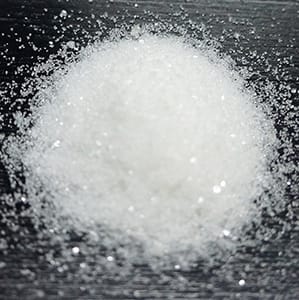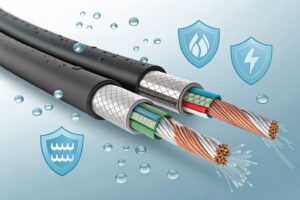In the rapidly evolving world of polymer additives and materials, anti-hydrolysis carbodiimide agents are becoming increasingly important in improving the durability of hydrolysis-prone products like PLA, TPU, PBT, and. It’s not only about choosing a product for distributors and trading firms, but also about selecting a partner that can deliver reliability, quality and technical expertise.
Here are ten key questions that you should ask before committing to a vendor to ensure your business remains competitive and your clients remain satisfied.
1. What Carbodiimide-Based Anti-Hydrolysis agents do you offer?
Not all carbodiimides have the same properties. There are polymeric and monomeric carbodiimides in liquid and solid form, as well as a variety of molecular structure options. Each one has different performance properties depending on the polymer target, processing temperature and shelf life.
A reliable supplier will offer multiple product options and customized solutions that match the needs of your customers. High-purity polymeric carbodiimides that are low-volatility are preferable for applications like PLA or TPU.
2. What polymers are compatible with your products?
The performance of different carbodiimide compounds varies depending on the matrix. Ensure the supplier is able to clearly demonstrate compatibility.
- Virgin PET and rPET
- Blends of PLA and PLA/PBAT
- Thermoplastic Polyurethanes
- PBT, PA6, PA66
This allows for a greater range of applications and reduces the risk of failure when compounding or aging products.
3. What is the recommended dosage and processing window?
One of the most frequent questions that distributors receive from customers is: How much should I add?
The suppliers should provide documentation that clearly outlines the dosage recommendation. This can range from 0.3% up to 1.0% depending on the materials and hydrolysis resistance needed. Choose a product that has a wide processing temperature window, e.g. 160-280degC. This will allow you to use it with different equipment and processes.
4. Do you have real-world case studies or application examples?
Case studies are more persuasive than theories. Ask for specific examples of the product’s use in film, fiber spinning or injection molding.
Real-world results, such as the reduction of failure rates by a client, an extension of product life or improved export quality, help build trust. You can also use these stories to share with your clients.
5. Can You Provide Certifications (RoHS, REACH, FDA, etc. )?
Compliance with international regulations is important if your customers export to Europe and North America . A qualified supplier will provide current certifications or reports including:
- REACH (EU).
- RoHS (EU).
- FDA (USA)
You may need Halal, ISO9001 or other certifications.
These certifications will help you to close deals quicker and avoid regulatory headaches.
6. How stable is the product during storage and processing?
If improperly stored, carbodiimides can lose their effectiveness over time. You can ask for shelf-life information and recommended storage conditions. Also, find out if the product is susceptible to:
- Yellowing in heat
- Volatilization during extrusion
- Hydrolysis in areas with high humidity
In sealed packaging, a high-quality product will offer 12-24 month shelf life and minimal discoloration when heated.
7. Are you able to provide technical support for formulation and troubleshooting?
Technical Support can be a deal breaker for many distributors and convertors. Your supplier should:
- Remote Formulation Assistance
- Compatibility Testing
- Virtual or on-site training
- Customized recommendations for your market
A supplier who acts as a true partner in technical matters helps you to differentiate yourself from your competitors, and builds stronger client relationships.
8. What is your minimum order quantity, lead time, and supply capacity?
In the chemical industry, consistency is key. Ask about:
- Minimum Order Quantity (MOQ)
- Lead time typical for different markets
- Annual production capacity
- Backup logistics for supply chain disruptions
You should also ensure that your supplier is able to deliver on time and has a reliable delivery system .
9. Do you have regional distributors or warehouses?
It is important to be close when doing business globally. You can benefit from a supplier who has regional warehouses or partners in Southeast Asia, Europe, Latin America , or the Middle East .
- Shorten delivery time
- Avoid import delays
- Shipping costs reduced
- Improve after-sales response time
It is especially important for customers who purchase in large quantities or use JIT (just-in time) systems.
10. Do you want to partner with a distributor or an agency?
This is the most important question if you are a chemical distributor or agent. Find a supplier who is expanding internationally and provides:
- Exclusive Territory Agreements
- Technical and Marketing Support
- Flexible pricing models
- Communication and training in a transparent manner
You can grow your client base confidently, as you know that your supplier is there to support you.
Final Thoughts
Selecting a supplier of carbodiimide-based anti-hydrolysis agents involves more than just a purchase decision. This is a strategic decision that can improve your entire value-chain. The right partner can not only provide high-quality products, but will also offer support in terms of technical assistance, regulatory compliance and market knowledge.
Langyi helps partners succeed around the globe by delivering carbodiimide add-ons tailored to PET, PLA PBAT TPU and other materials. Our team will support you in your growth, whether you’re serving local compounders or supplying global brands.
Are you interested in product samples, data sheets, or opportunities for regional distributors?
Contact us to learn more about how we can collaborate.







